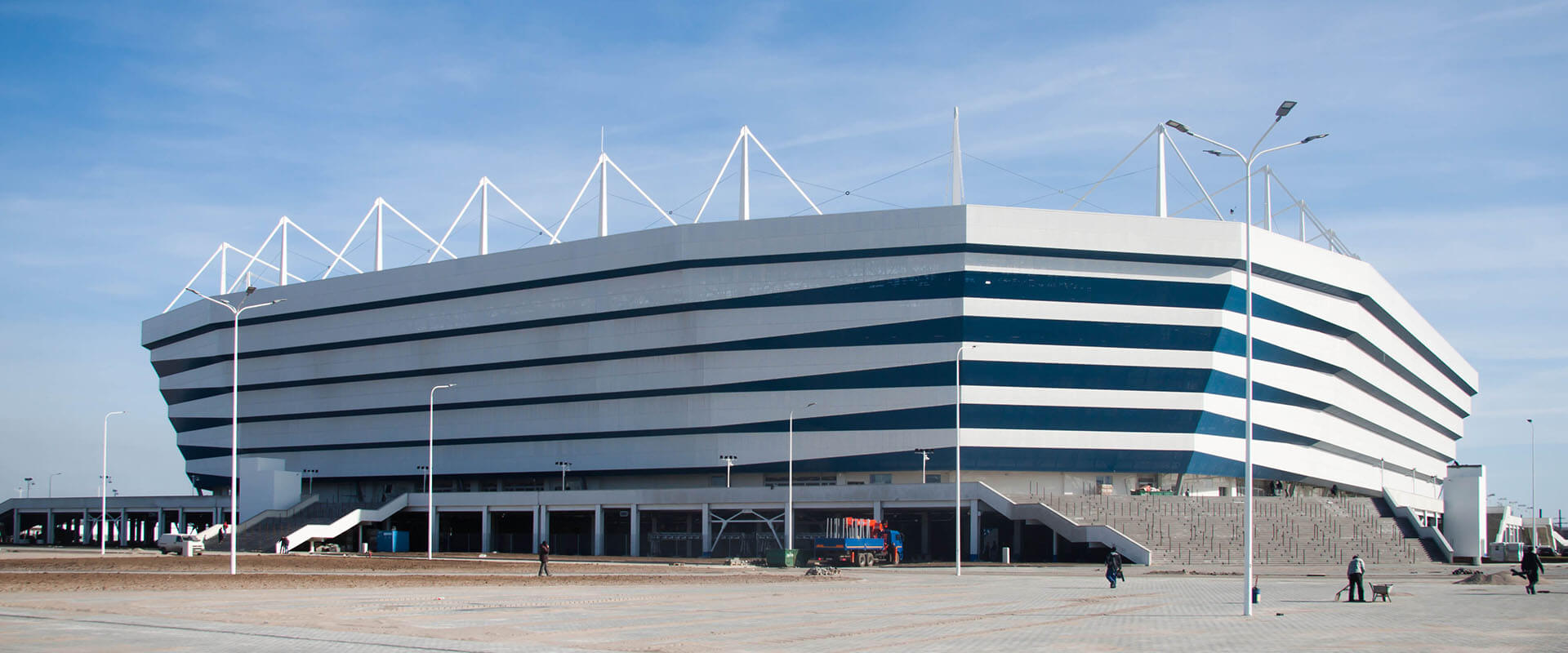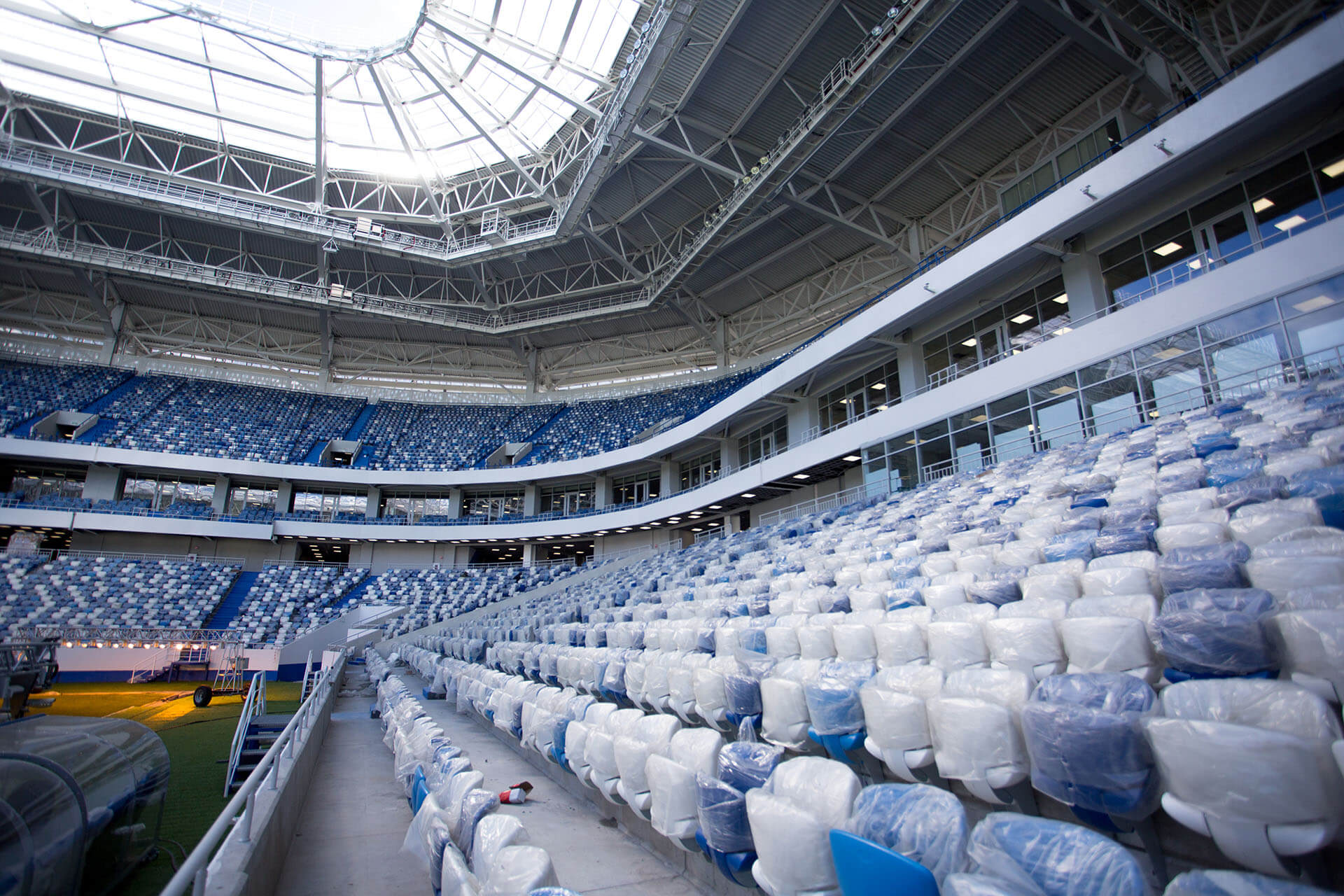
Football on the island
Kaliningrad Stadium
History
Kaliningrad Stadium was built for Russia 2018 on Oktyabrsky Island, right in the heart of Kaliningrad. The selection of Kaliningrad as a host city has prompted the local authorities to develop the island, which for many centuries has been a wilderness, left largely untouched. After the 2018 World Cup, a new residential development will be built around the stadium, with parks, quays and embankments alongside the Pregola river.
Kaliningrad is the westernmost venue of the World Cup.
Design
Kaliningrad Stadium is a multi-purpose venue. As well as football matches, it will host other sporting events and concerts. The stadium is designed as a modern five-level facility.
The winning design of the architectural competition was created by the French architects Willmotte, but is not recognizable any more. Instead, a horizontal metal facade was realised. Inside the Kaliningrad stadium there are two tiers with two box storeys in between. A grandstand roof suspended from pylons protects against rain and snow.
25,000 piles were driven to serve as the stadium’s foundation.
City and legacy
Kaliningrad is the center of Russia’s westernmost region and the country’s only exclave. It was home to one of the world’s greatest philosophers, Immanuel Kant. Until 1946, Kaliningrad used to be known as Koenigsberg and was part of the East Prussia. The region and the city have been known as a source of amber, fossilized tree resin that is some 50 million years old. It is home to the planet’s only industrial-scale amber production facility with an annual output of more than 300 tonnes.
The capacity will be cut to around 25,000 after the World Cup and FC Baltika Kaliningrad, the local side, will play here. It risks being another venue that is rarely filled: the club have not played in the Russian top flight for two decades and typical crowds at their current Baltika Stadium home number in the low thousands. Concerts and other events are also expected to take place here, though.
Following the 2018 FIFA World Cup™, it will serve as the home arena for FC Baltika Kaliningrad, and will also become part of a sports facility, featuring a leisure park, a bicycle track, parking lots, and a yacht quay.
User
FC Baltika Kaliningrad
Author
FIFA
Wikipedia
More Sports Media
Photographs
© Host city Kaliningrad
© Dmitry Rozhkov (Top)
Status
New building
Address
Solnechnyy Bul’var
Kaliningrad
Kaliningradskaya oblast’
Russia, 236006
Aerial view
Thank you, Google!
Opening
2018
Spectator seats
35.000 / 25.000 after the World Cup
Videos




